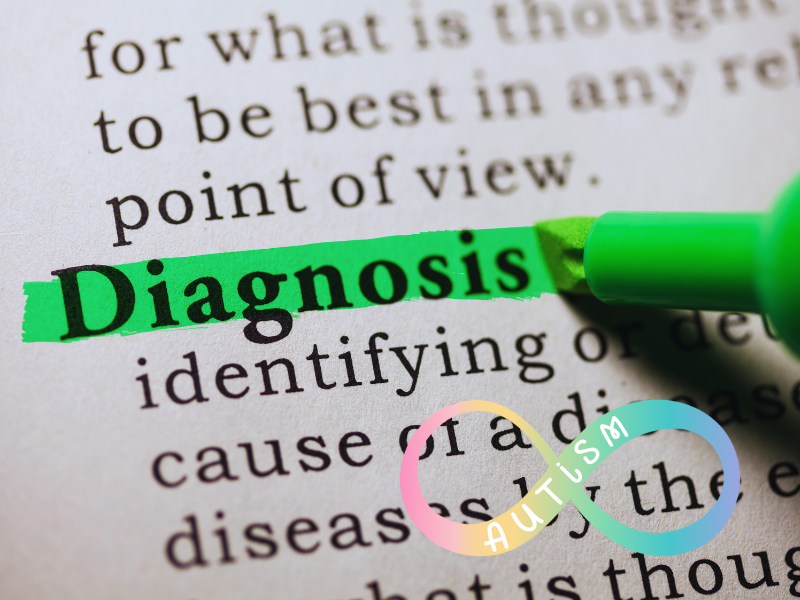Early diagnosis is crucial for effective intervention and support for individuals with autism. Autism is a neurodevelopmental disorder that affects communication, social interaction, and behavior. By understanding the signs and symptoms of autism, the diagnostic process, and the importance of early diagnosis, individuals with autism can receive the appropriate interventions and support they need.
I. How is Autism Diagnosed | Know the Signs and Symptoms of Autism
Autism is characterized by a range of behaviors and characteristics. Common signs and symptoms include difficulties in communication, social interactions, and repetitive behaviors. Some individuals with autism may have difficulty with verbal and nonverbal communication, such as delays in speech or using gestures to communicate. They may also struggle with social interactions, finding it challenging to make or maintain eye contact, understand social cues, or engage in back-and-forth conversation. Repetitive behaviors, such as hand-flapping, rocking, or fixating on specific objects or topics, are also common signs of autism.
It is essential to note that autism exists on a wide spectrum, and individuals may experience varying degrees and combinations of these symptoms. Some individuals may have exceptional abilities in specific areas, such as music, art, or mathematics. Understanding the diverse manifestations of autism can help in recognizing and supporting individuals.
II. The Diagnostic Process
A. Initial Screening and Parental Concerns
Parents and caregivers are often the first to notice signs and behaviors that may indicate autism. They play a vital role in the diagnostic process by bringing their concerns to healthcare professionals. Early red flags can include delayed speech or social milestones, lack of eye contact, preference for solitary play, and repetitive behaviors. Parental input and observations are invaluable in understanding an individual’s patterns and behaviors.
B. Autism Diagnostic Tools and Assessments
To reach a diagnosis, professionals use standardized assessment tools that focus on evaluating communication, social behavior, and repetitive behaviors. The Autism Diagnostic Observation Schedule (ADOS) and the Autism Diagnostic Interview-Revised (ADI-R) are widely used tools. These assessments involve structured observations, interviews, and questionnaires to assess an individual’s developmental history, current behaviors, and functioning.
When it comes to how Autism is diagnosed, there is no one definitive medical test instead, clinicians rely on a combination of assessments and observational data. The diagnostic process typically involves a comprehensive assessment and evaluation conducted by a qualified healthcare professional, such as a developmental pediatrician, neurologist, or psychologist.
There are various diagnostic tools and assessments available for ASD, including:
- Autism Diagnostic Observation Schedule (ADOS) – A standardized observational assessment used to evaluate social interaction, communication, and imaginative play in individuals suspected of having ASD
- Social Communication Questionnaire (SCQ) – A screening tool that assesses communication and social interaction deficits associated with ASD
- Childhood Autism Rating Scale (CARS) – A behavioral rating scale used to diagnose autism in children based on observed characteristics of social interactions, communication, and repetitive behavior
- Autism Spectrum Quotient (AQ) – A self-administered questionnaire designed to identify traits associated with ASD in adults
It is important to note that none of these diagnostic tools or assessments on its own is sufficient to diagnose ASD. Instead, healthcare professionals use them in combination with other methods, such as medical and family history evaluations, to make a diagnosis. Furthermore, some individuals with milder forms of autism may not produce a diagnostic result from these tests, emphasizing the continued need for trained clinical examination[1].
These diagnostic tools and assessments can be helpful in identifying ASD and guiding treatment plans so that individuals with autism gain access to services and interventions that support their development and well-being.
C. Diagnostic Criteria and DSM-5
The Diagnostic and Statistical Manual of Mental Disorders (DSM-5) outlines the criteria used to diagnose autism. According to the DSM-5, individuals must display persistent deficits in social communication and interaction, as well as restricted, repetitive patterns of behavior, interests, or activities. These symptoms must be present in early childhood and negatively impact daily functioning.
The Diagnostic and Statistical Manual of Mental Disorders (DSM) is a handbook widely used by clinicians and psychiatrists in the United States. It is published by the American Psychiatric Association (APA) and serves as a guidebook for diagnosing psychiatric illnesses. The DSM covers all categories of mental health disorders for both adults and children[1].
The DSM provides a standardized set of criteria for diagnosing mental health disorders. It outlines the symptoms and diagnostic criteria for each disorder, helping clinicians make accurate and consistent diagnoses[1]. The manual is regularly updated to reflect advancements in research and understanding of mental health conditions.
In practice, mental health professionals, such as psychiatrists, psychologists, and counselors, use the DSM to assess and diagnose individuals presenting with mental health concerns. They evaluate the individual’s symptoms and compare them to the criteria outlined in the DSM to determine the appropriate diagnosis[1]. The DSM helps provide a common language for professionals to communicate and understand mental health disorders, facilitating effective treatment planning and ensuring consistency in diagnoses across practitioners.
It is important to note that the DSM is primarily used in the United States and may differ from diagnostic manuals used in other countries. Mental health professionals outside the United States may reference other classification systems, such as the International Classification of Diseases (ICD), in addition to or instead of the DSM.
Overall, the DSM serves as a valuable tool for mental health professionals, providing a standardized framework for diagnosing mental health disorders. It assists in promoting consistency and accuracy in diagnoses, enhancing treatment planning, and facilitating research in the field of mental health.
III. How is Autism Diagnosed | The Role of Professionals
A. Developmental Pediatricians
Developmental pediatricians specialize in diagnosing and treating developmental disorders, including autism. They conduct thorough evaluations and assessments, taking into account the individual’s developmental history, medical records, and observations. Developmental pediatricians collaborate with other professionals to provide a comprehensive diagnosis and develop tailored interventions.
B. Child Psychologists
Child psychologists play a vital role in evaluating the cognitive and behavioral aspects of autism. They utilize various assessment tools, conduct psychological testing, and provide behavioral interventions tailored to an individual’s needs. Psychologists also support individuals with autism and their families in managing emotional and behavioral challenges, offering counseling and coping strategies.
C. Speech Therapists
Speech therapists focus on assessing and improving communication skills for individuals with autism. They help develop language and communication abilities, address speech delays, and provide strategies to enhance social interactions. Speech therapy may utilize alternative communication methods, such as using visuals or augmentative and alternative communication (AAC) devices.
D. Occupational Therapists
Occupational therapists assess and address sensory and motor challenges that individuals with autism may experience. They develop interventions to improve sensory processing, motor coordination, self-care skills, and daily living activities. Occupational therapy can also help individuals with autism develop strategies to manage sensory sensitivities and adapt to various environments.
IV. The Importance of Early Diagnosis
Early diagnosis paves the way for early intervention and support, which greatly improves outcomes for individuals with autism. Research shows that individuals who receive early intervention have better language development, social skills, and overall functioning. Early diagnosis allows for tailored interventions, such as applied behavior analysis (ABA), speech therapy, occupational therapy, and social skills training. These interventions empower individuals with autism to better navigate their social environments, build relationships, and develop independent living skills.
V. How is Autism Diagnosed| Challenges and Misdiagnosis
Diagnosing autism accurately can present challenges, often leading to potential misdiagnosis or delayed diagnosis. Some individuals, especially those on the higher-functioning end of the spectrum or with atypical presentations, may be overlooked or misdiagnosed with other conditions. Additionally, cultural and societal factors can influence diagnostic practices. It is crucial to seek a comprehensive evaluation with professionals experienced in diagnosing autism if concerns arise.
Understanding and recognizing the signs and symptoms of autism, along with the diagnostic process, empowers individuals with autism and their families to seek appropriate interventions and support. Early diagnosis is key, as it opens doors to early intervention, leading to improved outcomes and a better quality of life for individuals with autism. By raising awareness and promoting understanding, we can create a more inclusive society that supports and embraces neurodiversity.
Additional resources:
There are many online resources and websites providing useful tools, such as tests or quizzes, to aid in understanding Autism Spectrum Disorders (ASD). However, it’s crucial to remember that these resources do not replace professional diagnosis. If you suspect you or your child may have autism, you should consult a healthcare professional.
- Autism Speaks
- Child Mind Institute
- Psychology Today
- Medline Plus – Autism Spectrum Disorder
- National Autistic Society
- Psych Central – Autism Test
- Cambridge Autism Research Centre
- Asperger Test Site
- Center for Autism (CARS)
- Autism Society
- Autism Research Institute
- Interactive Autism Network
- Tony Atwood Autism
- VeryWellMind
- AspieTests
- Asperger/Autism Network
- Healthline
- Child Brain
- American Autism Association
- Autism-World
- WebMD – Autism Checklist
- Autism Navigator
- Psych Tests
- Autism Explained
- American Psychiatric Association – Autism
- What is Autism?
- Autism Parenting Magazine
- The Arc’s Autism Now
- Mayo Clinic
- Asperger/Autism Spectrum Diagnosis
- Cleveland Clinic
- Autism Network International
- The Help Group
- Wrong Planet
- Autism Independent UK
Early screening is crucial for early intervention and therapy, which significantly improves outcomes for individuals with autism. Be sure to consult with a healthcare provider about any concerns you may have regarding ASD symptoms.
More from the blog:









